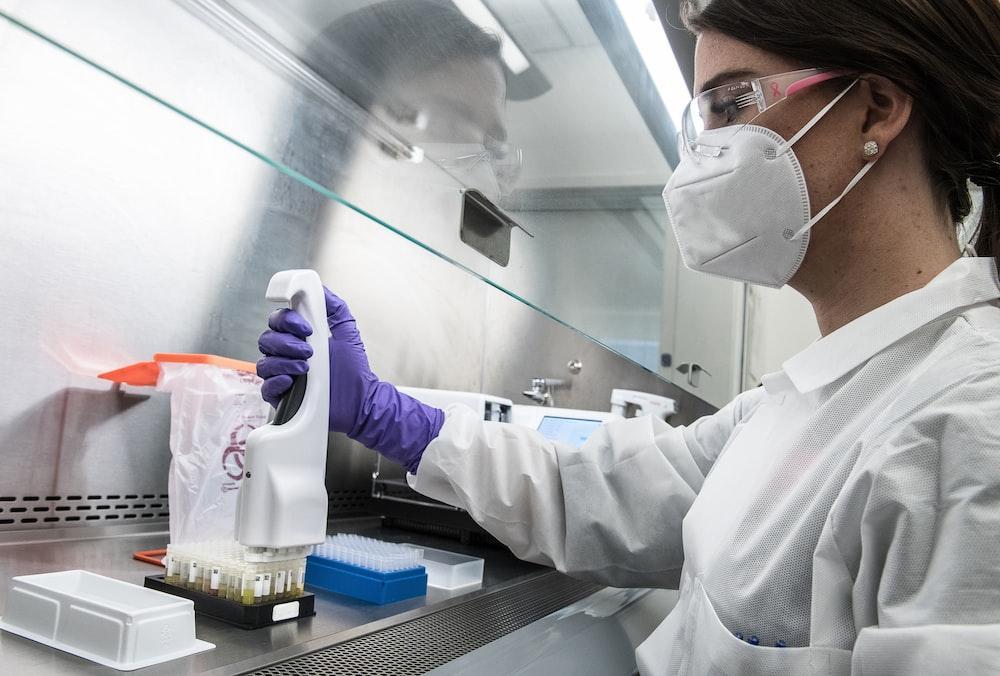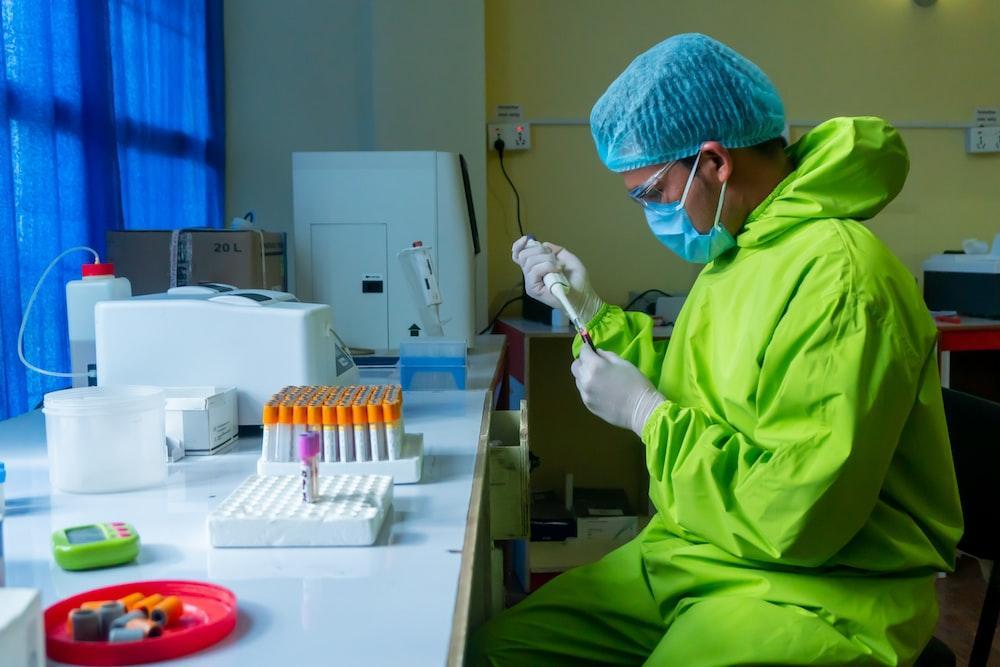Protein Production Services: Accelerating Scientific Breakthroughs

The building blocks of life, proteins, are essential to many biological processes. They are vital tools for industrial applications, medication development, diagnostics, and scientific research because of their distinctive characteristics and capabilities.
In this blog post, we will look at the substantial contribution protein production services provide to the growth of scientific knowledge.
We will look at how customized protein synthesis, large-scale manufacturing capabilities, recombinant expression systems, protein purification expertise, and tight quality control methods can help accelerate research in various ways.
What Are Custom Proteins?
Custom proteins are recombinant proteins created by specialized manufacturing instead of mass production. They are made by cloning recombinant DNA into an expressional vector, which enables messenger RNA to be translated and the gene to be expressed.
How Are Recombinant Proteins Produced?
The isolation and cloning of a protein’s coding sequence into an expression plasmid vector is the first step in the Protein Production Service.
Despite being human-derived, most therapeutic recombinant proteins are created in a laboratory using bacterial, yeast, or animal cells. Introns, non-coding DNA segments, are a common component of human genes. This is why converting mRNA into cDNA is frequently used to produce an intron-free variant.
Significantly, expression vectors contain sequences that can act as promoters, ribosome-binding sites, and termination codons because the cDNA lacks regulatory sections. Also, Recombinant proteins are largely used for research due to their affordability, simplicity, speed, and adequate product yields.
Additionally, eukaryotic expression systems are necessary for post-translational modifications of proteins, such as phosphorylation or glycosylation.
Many recombinant proteins, such as glycosylation, need alterations to proteins found solely in eukaryotic organisms. In yeast, insect cell, and mammalian cell cultures, post-translational changes are possible. Effective temporary transfection techniques have been developed in the last ten years. HEK293 cell lines are utilized for transient protein synthesis.
Notably, because mammalian cells can produce high-quality proteins comparable to those found in nature, most recombinant therapeutic proteins are now made in these cells. Because of its well-defined genetics, rapid growth, and high-yield production, E. coli protein expression is also utilized to manufacture numerous permitted recombinant therapeutic proteins.
Advantages of Custom Proteins
- It Doesn’t Require Institutional Review Board (IRB)
Because obtaining natural human proteins necessitates the collaboration of human volunteers, IRB approval is essential. As a result, more paperwork and time are spent waiting for documents to be authorized. This is not true with recombinant proteins, particularly those created through bespoke antibody services.
- Enhanced Protein-Protein Interactions

Understanding and manipulating protein-protein interactions is essential in many fields of research. Custom proteins can have high binding affinity and specificity for specific compounds. This enables researchers to precisely analyze and control protein-protein interactions, gaining insights into complicated biological processes and potentially identifying novel therapeutic targets.
- Offer More Feasibility/Flexibility to Your Project
How often have promising initiatives been shelved due to the high cost of reagents? This disadvantage frequently occurs in normal recombinant manufacturing but not in solid-phase peptide synthesis techniques and custom production services. As your project proceeds, you can generate variants from a wild-type protein.
- Targeted Therapeutics

Custom proteins play an important role in the creation of targeted therapies. Researchers can use protein engineering techniques to create proteins that selectively interact with disease-associated molecules or pathways.
Custom antibodies, for example, can be created to recognize and bind to specific antigens, allowing for targeted medication delivery, immune regulation, and precision medicine approaches to be used.
- Improved Stability and Solubility
Proteins, notably those produced from recombinant sources, can have poor stability and solubility qualities, restricting their utility. Researchers can use custom protein engineering to change the sequence of a protein to improve its stability, solubility, and resistance to degradation. This assures superior protein performance, larger yields, and enhanced downstream applications.
- Versatile Tools for Research
Custom proteins are valuable scientific research tools. They can be employed as probes, markers, or standards in various experiments, including protein-protein interactions, structural biology, cellular imaging, and proteomics. Custom proteins give researchers precise control over experimental settings and allow them to investigate biological systems at the molecular level.
- Unique Functionality and Novel Applications
Custom proteins allow the development of new capabilities not seen in normal proteins. Using rational design or directed evolution methodologies, researchers can create proteins with new enzymatic activity, substrate specificities, or binding characteristics.
These distinct capabilities open the door to fresh applications in various fields, including biotechnology, pharmaceuticals, and materials research.
Essential Applications of Custom Protein
- Biomedical Research
For biomedical research, such as analyzing protein interactions, structures, and functions, custom proteins are crucial tools. Custom proteins can be designed and synthesized to research specific biological processes, test hypotheses, and develop new therapeutic strategies.
- Biocatalysis
As biocatalysts in chemical reactions, custom proteins provide an eco-friendly substitute for conventional chemical catalysts. Protein engineering approaches allow for the design and optimization of enzymes to catalyze particular reactions with high efficiency and selectivity, finding use in producing biodegradable polymers and other things like pharmaceutical synthesis.
- Industrial Enzymes

Custom proteins find usage in industrial settings in the manufacture of enzymes utilized in various processes. Scientists can improve proteins’ stability, activity, and specificity by altering them, making them more effective in commercial processes like food processing, detergent synthesis, biofuel production, and bioremediation.
- Biosensors
Biosensors that identify specific compounds or environmental conditions are created using custom proteins. These sensors can be applied in various applications, including environmental monitoring, food safety testing, and medical diagnostics.
Biosensors can offer quick and precise detection of target analytes by designing proteins with particular binding capabilities.
- Diagnostic Assays
Custom proteins are used in diagnostic assays to find and measure particular biomarkers. Antibiotic and recombinant proteins are frequently used as capture or detection reagents in methods like the enzyme-linked immunosorbent assay (ELISA), lateral flow assays, and immunohistochemistry.
- Protein Engineering
Proteins having desirable properties, such as enhanced stability, altered specificity, or elevated catalytic activity, are engineered using custom proteins. Protein engineers can modify known proteins or make entirely new ones to serve a variety of purposes, including industrial usage and medical interventions.
- Therapeutics and Drug Development
Custom proteins are essential in the creation of therapeutics. They can be designed to function as biologics, such as antibodies, enzymes, or receptor agonists/antagonists that target specific disease-related components or processes.
Protein-based medications, gene treatments, and vaccinations are all made with custom proteins.
Bottomline
Biotechnology breakthroughs for various uses have boosted and facilitated recombinant protein production. The use of Recombinant protein in diagnostic tools, therapeutic medicines, and basic life science research has grown significantly. They make an essential contribution to biotechnology. You must find a legitimate and renowned custom protein synthesis company to get the most significant rewards.












